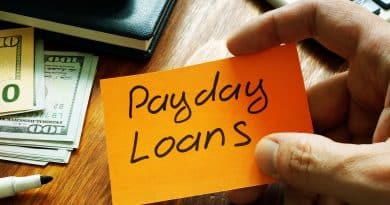eNaira: Accelerating Nigeria’s Evolution into a Cashless Society, by Abdulrahman Abdulraheem

eNaira: Accelerating Nigeria’s Evolution into a Cashless Society, by Abdulrahman Abdulraheem
The concept of a cashless society has been the topic of discussion lately because the world is experiencing a rapid and increasing use of digital methods in recording, managing, and exchanging money in commerce, investment and daily life in many parts of the world, and transactions which would ordinarily have been undertaken with cash are often now done electronically. Some countries now set limits on transactions and transaction values for which non-electronic payment may be legally used.
Early ideas of a cashless society were expressed by Edward Bellamy in his novel “Looking Backward.” The trend towards the use of non-cash transactions and settlement in daily life began during the 1990s when electronic banking became common. By the 2010s digital payment methods were widespread in many countries, with examples including intermediaries such as PayPal, digital wallet systems such as Apple Pay, contactless and NFC payments by electronic card or smartphone, and electronic bills and banking, all in widespread use. At this point, cash had become actively disfavoured in some kinds of transaction which would historically have been very ordinary to pay with physical tender, and larger cash amounts were in some situations treated with suspicion, due to its versatility and ease of use in money laundering and financing of terrorism. Additionally, payment with a large amount of cash has been actively prohibited by some suppliers and retailers, to the point of coining the expression of a “war on cash.”
The 2016 United States User Consumer Survey Study claims that 75% of respondents preferred a credit or debit card as their payment method while only 11% of respondents preferred cash.
Since the founding of both companies in 2009, digital payments can now be made by methods such as Venmo and Square. Venmo allows individuals to make direct payments to other individuals without having cash accessible. Square is an innovation that allows primarily small businesses to receive payments from their clients.
By 2016, only about 2% of the value transacted in Sweden was by cash, and only about 20% of retail transactions were in cash. Fewer than half of bank branches in the country conducted cash transactions. The move away from cash is attributed to banks convincing employers to use direct deposit in the 1960s, banks charging for checks starting in the 1990s, banks launching the convenient Swish smartphone-to-phone payment system in 2012, and the launch of iZettle for small merchants to accept credit cards in 2011.
A common measure of how close to a “cashless society” a country is becoming is some measure of the number of cashless payments or person to person transactions are done in that country. For instance, the Nordic countries conduct more cashless transactions than most other Europeans. Levels of cash in circulation can widely differ among two countries with a similar measure of cashless transactions.
Across the 33 countries covered in the European Payment Cards Yearbook 2015–16, the average number of card payments per capita per year is 88.4. In comparison, the average Dane makes 268.6 card payments each year, the average Finn 243.6, the average Icelander 375.5, the average Norwegian 353.7, and the average Swede 270.2. This makes card payments in the Nordics two-and-a-half to four times higher than the European average.
Local and foreign experts have agreed that cashless transactions help to reduce business risks and costs, reduce the transmission of certain diseases, guarantee transaction speed, check money laundering and other criminal activities and also aid better collation of economic data at micro and macro levels.
Experts have also said that for a country like Nigeria, going cashless might help to rake in more taxes, as more small businesses will become visible to the tax authorities. They explained that the policy will also enable tax authorities to get the intelligence to track a country’s income and net worth making it easier to fish out potential tax evaders.
Modern day monetary policy operators in Nigeria and beyond want an end to the era of going to the banking hall to withdraw up to N2 million over the counter.
Nigerians have therefore been urged to embrace electronic payment (e-payment) channels for their transactions. Such channels include eNaira, cards, mobile money accounts, QR codes, and USSD among others.
It is on record that the Central Bank of Nigeria (CBN) has implemented various policies to fully migrate Nigeria from a cash-based economy to a full cashless society.
The CBN governor, Godwin Emefiele, during a press conference on the outcome of the last Monetary Policy Committee (MPC), recently, in Abuja said the online payments have increased astronomically in line with the Banks advocacy.
There are other supporting facts that corroborate Emefiele’s claims. Data from the Nigeria Inter-Bank Settlement System (NIBSS), shows that total cashless transactions in Nigeria rose by 45.41 percent year-on-year to N39.58 trillion in January 2023.
According to the NIBSS, Point of Sales (PoS) transactions rose by 40.69 percent to N807.16 billion in January 2023 from N573.72 billion in January 2022.
The NIBSS report showed that total NIP transactions for the period rose by 45.52 per cent year-on-year from N26.65 trillion as of January 2022 to N38.77 trillion as of January 2023.
In that press conference, Emefiele also thanked some Fintech companies that used their idle capacity to boost online payments.
“And we are happy that, rather than rely on only the banks, we have many other channels through which online banking and online payment services can be done so that Nigerians don’t have to suffer, because we are insisting that we have to go cashless,” he said.
The CBN said in its Payments Vision 2025 document that the use of cash payments will reduce by 2025.
As approved by President Muhammadu Buhari, the CBN on December 15, 2022, commenced the implementation of the naira redesign policy.
The apex bank had, on October 26, 2022, announced plans to redesign the high value naira notes – N200, N500 and N1,000, aimed at reducing the volume of cash outside the vault of deposit money banks.
The CBN also reintroduced the maximum weekly limit for cash withdrawals across all channels by individuals and corporate organisations to N500,000 and N5m respectively.
The eNaira Impact
In July 2021, the CBN introduced the eNaira, as a Nigerian version of Central Bank Digital Currencies (CBDCs) which was fully launched in October 2021.
At the beginning of the eNaira operations, about 33 banks were fully integrated on the platform, with about N500 million (USD1.2m) minted by the CBN.
“eNaira was introduced to complement the already vibrant payment infrastructure out there,” said, the CBN Director, Information Technology Department, Hajia Rakiya Muhammad, said.
“With the eNaira, we have a resilient infrastructure that can handle the requirements of the cashless policy and if we are able to drive the adoption of the eNaira efficiently, this will take away the pressure of the current cash crunch and issues with financial transactions in the country,” she added.
“The eNaira has emerged as the electronic payment channel of choice for financial inclusion and executing social interventions,” Emefiele said, attributing the surge to the use of the eNaira to disburse aid via the social investment programmes.
Emefiele said the eNaira adoption rate continued to increase and improve, adding that everything was being done to make sure it continued.
He said that within the first 18 months of the eNaira lunch, over 13 million e-wallets were recorded.
At the end of November 2022, the CBN said that the eNaira recorded 700,000 transactions valued at N8 billion, adding that this had increased to N22 billion.
According to the CBN governor, these e-wallets were categorised based on their level of usage, with 12.6 million at Tier zero, 11,354 at Tier one, 367,000 at Tier two, and 9,649 at Tier three.
He said one notable area where the eNaira had been adopted and must be appreciated was the Ministry of Humanitarian Affairs, Disaster Management and Social Development, which had expressed keen interest in the eNaira product.
He cited March 20, 2023 when approximately 4 million e-wallets were created so far for social intervention payments, representing about 30 percent of the total e-wallet created so far. These wallets were created in response to a request from the Ministry as part of plans for the next tranche of the conditional cash transfer programme, which was going to be through in the second quarter of 2023.
“There are other very good and encouraging data that we have seen like I said the number of e-wallet created is about N18 million, 13 million of them, the value of eNaira transactions, has reached almost N22 billion, which is a 68 percent increase since the beginning of this year. Over 10 billion of it has been minted and about N3.429 billion of it, is currently in circulation.
“So I will say we have seen good progress in the adoption of eNaira and we are happy that as we try to move more and more towards financial inclusion, and get people away from being excluded from the financial system, eNaira remains one very possible option for you to adopt the cashless policy,” Emefiele said.
To further push for the goal of financial inclusion and carry people without bank accounts and smart phones along, the CBN, in May last year, adopted an Unstructured Supplementary Service Data (USSD) code, 997, for eNaira transactions.
It is no longer doubtful that a cashless society is desirable for the above stated advantages. What is even more obvious is the impact the eNaira is making in getting Nigerians to gradually abandon cash transfers and embrace the CBDC. Even though it is the last to arrive, the eNaira has beaten other digital or e-payment platforms in terms of the swiftness of its acceptance. This is why the eNaira is seen in monetary circles as the most credible gateway to that desired cashless future for Nigeria.









